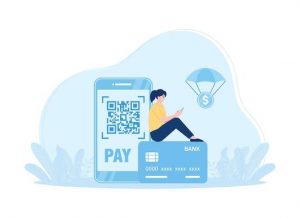Growing up is a lot of fun, with experiences and lessons that influence adult life.
A smooth bicycle ride can be such a pleasurable pastime. However, falling off a bicycle is more than just an experience; it is you conquering your fears and getting back on it.
Image Source: www.firstbanknigeria.com
Whether at home, in school, or within the community, life lessons can be learnt in a series of events and adventures. Many children focus on how to play an instrument that will enhance a skill and provide a source of income for them in the future.
Children are constantly learning and ever attentive to pick habits that they see around them. This is one trait that parents and wards need to harness to develop a positive culture of financial literacy in their children.
For many children, the introduction to money & savings, may be through a piggybank (kolo), where every naira or kobo gift received, goes into. Some parents encourage children to use empty cans with a small hole slit across the top. This is to allow the child drop money into the can without having access to remove the money until a later date.
Children look forward to an opportunity to break their piggybanks (kolo) or empty their savings cans. With the parents guiding their children through this experience, this tends to be the first lesson in financial literacy.
But there is more to learning about the value of Naira and Kobo for children.
- Financial literacy for children can be described as their ability to effectively understand and use and various financial skills, like personal financial management, savings and spending, investing, and budgeting.
- One of the best places to learn about money is at home.
It could be a conversation around the dinner table, or while shopping in the mall, or when they are required to make holiday wish lists.
- As children become teenagers, there are many opportunities to keep the conversation on financial literacy going. From earning their first salary (for a holiday job), to paying for data and saving for post-secondary education.
- Parents can take charge of teaching their children about money to influence their financial behaviour as well as grow savers, givers, investors, and value conscious consumers.
- One of the ways by which FirstBank encourages parents to intentionally teach their children and teenagers about money is to open a KidsFirst or MeFirst account for them at FirstBank.
- The KidsFirst and MeFirst accounts are designed to encourage the right savings culture in children from 0 – 17 years. The offerings have relevant enhancements, including appropriate parental guidance and financial discipline for children.
- KidsFirst Account is designed for children between the ages of 0 and 12 years, to sensitise them on how exciting saving can be.
The account comes with a trendy gift item for the child when it is opened and it automatically transitions into a MeFirst account on the child’s 13th birthday.
- MeFirst account on the other hand, is designed for teenagers between the ages of 13 and 17. This account is created in recognition of the need to help teenagers embrace the culture of financial responsibility and cashless payments as they develop into young adults.
- They have access to attractive and trendy pre-paid cards, through which parents and guardians can credit weekly/monthly allowances and monetary gifts. The MeFirst cards come in five (5) exciting designs. They are enabled to pay for micro-online shopping, as desired, mobile games, apple music, Spotify and local POS transactions.
Teens are thereby exposed to the cashless culture and electronic payment activities early in life. This is expedient in today’s digital age.
Our children are the future.
A financially literate population is good for our economy.
Visit any FirstBank branch or click on www.firstbanknigeria.com to find out how you can put your children or wards on a sound financial footing.


